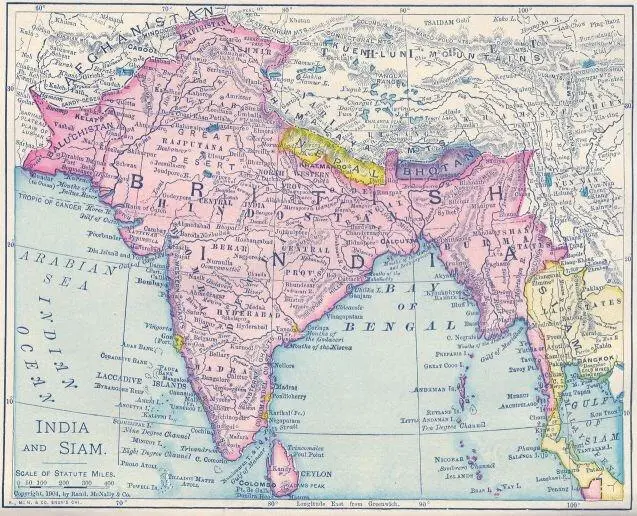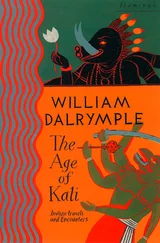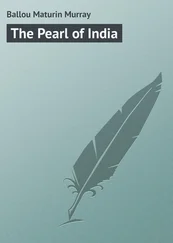William Curtis - Modern India
Здесь есть возможность читать онлайн «William Curtis - Modern India» — ознакомительный отрывок электронной книги совершенно бесплатно, а после прочтения отрывка купить полную версию. В некоторых случаях можно слушать аудио, скачать через торрент в формате fb2 и присутствует краткое содержание. Жанр: Путешествия и география, История, foreign_edu, foreign_antique, foreign_prose, на английском языке. Описание произведения, (предисловие) а так же отзывы посетителей доступны на портале библиотеки ЛибКат.
- Название:Modern India
- Автор:
- Жанр:
- Год:неизвестен
- ISBN:нет данных
- Рейтинг книги:4 / 5. Голосов: 1
-
Избранное:Добавить в избранное
- Отзывы:
-
Ваша оценка:
- 80
- 1
- 2
- 3
- 4
- 5
Modern India: краткое содержание, описание и аннотация
Предлагаем к чтению аннотацию, описание, краткое содержание или предисловие (зависит от того, что написал сам автор книги «Modern India»). Если вы не нашли необходимую информацию о книге — напишите в комментариях, мы постараемся отыскать её.
Modern India — читать онлайн ознакомительный отрывок
Ниже представлен текст книги, разбитый по страницам. Система сохранения места последней прочитанной страницы, позволяет с удобством читать онлайн бесплатно книгу «Modern India», без необходимости каждый раз заново искать на чём Вы остановились. Поставьте закладку, и сможете в любой момент перейти на страницу, на которой закончили чтение.
Интервал:
Закладка:
William Eleroy Curtis
Modern India

MODERN INDIA
I
THE EYE OF INDIA
A voyage to India nowadays is a continuous social event. The passengers compose a house party, being guests of the Steamship company for the time. The decks of the steamer are like broad verandas and are covered with comfortable chairs, in which the owners lounge about all day. Some of the more industrious women knit and embroider, and I saw one good mother with a basket full of mending, at which she was busily engaged at least three mornings. Others play cards upon folding tables or write letters with portfolios on their laps, and we had several artists who sketched the sky and sea, but the majority read novels and guide books, and gossiped. As birds of a feather flock together on the sea as well as on land, previous acquaintances and congenial new ones form little circles and cliques and entertain themselves and each other, and, after a day or two, move their chairs around so that they can be together. Americans and English do not mix as readily as you might expect, although there is nothing like coolness between them. It is only a natural restraint. They are accustomed to their ways, and we to ours, and it is natural for us to drift toward our own fellow countrymen.
In the afternoon nettings are hung around one of the broad decks and games of cricket are played. One day it is the army against the navy; another day the united service against a civilian team, and then the cricketers in the second-class salon are invited to come forward and try their skill against a team made up of first-classers. In the evening there is dancing, a piano being placed upon the deck for that purpose, and for two hours it is very gay. The ladies are all in white, and several English women insisted upon coming out on the deck in low-cut and short-sleeved gowns. It is said to be the latest fashion, and is not half as bad as their cigarette smoking or the ostentatious display of jewelry that is made on the deck every morning. Several women, and some of them with titles, sprawl around in steamer chairs, wearing necklaces of pearls, diamonds, emeralds and other precious stones, fit for only a banquet or a ball, with their fingers blazing with jewels and their wrists covered with bracelets. There seemed to be a rivalry among the aristocracy on our steamer as to which could make the most vulgar display of gold, silver and precious stones, and it occurs to me that these Englishwomen had lived in India so long that they must have acquired the Hindu barbaric love of jewelry.
My attention was called not long ago to a cartoon in a British illustrated paper comparing the traveling outfits of American and English girls. The American girl had a car load of trunks and bags and bundles, a big bunch of umbrellas and parasols, golf sticks, tennis racquets and all sorts of queer things, and was dressed in a most conspicuous and elaborate manner. She was represented as striding up and down a railway platform covered with diamonds, boa, flashy hat and fancy finery, while the English girl, in a close fitting ulster and an Alpine hat, leaned quietly upon her umbrella near a small "box," as they call a trunk, and a modest traveling bag. But that picture isn't accurate. According to my observation it ought to be reversed. I have never known the most vulgar or the commonest American woman to make such a display of herself in a public place as we witnessed daily among the titled women upon the P. and O. steamer Mongolia, bound for Bombay. Nor is it exceptional. Whenever you see an overdressed woman loaded with jewelry in a public place in the East, you may take it for granted that she belongs to the British nobility. Germans, French, Italians and other women of continental Europe are never guilty of similar vulgarity, and among Americans it is absolutely unknown.
It is customary for everybody to dress for dinner, and, while the practice has serious objections in stormy weather it is entirely permissible and comfortable during the long, warm nights on the Indian Ocean. The weather, however, was not nearly as warm as we expected to find it. We were four days on the Red Sea and six days on the Indian Ocean, and were entirely comfortable except for two days when the wind was so strong and kicked up so much water that the port-holes had to be closed, and it was very close and stuffy in the cabin. While the sun was hot there was always a cool breeze from one direction or another, and the captain told me it was customary during the winter season.
The passengers on our steamer were mostly English, with a few East Indians, and Americans. You cannot board a steamer in any part of the world nowadays without finding some of your fellow countrymen. They are becoming the greatest travelers of any nation and are penetrating to uttermost parts of the earth. Many of the English passengers were army officers returning to India from furloughs or going out for service, and officers' families who had been spending the hot months in England. We had lots of lords and sirs and lady dowagers, generals, colonels and officers of lesser rank, and the usual number of brides and bridegrooms, on their wedding tours; others were officials of the government in India, who had been home to be married. And we had several young women who were going out to be married. Their lovers were not able to leave their business to make the long voyage, and were waiting for them in Bombay, Calcutta or in some of the other cities. But perhaps the largest contingent were "civil servants," as employes of the government are called, who had been home on leave. The climate of India is very trying to white people, and, recognizing that fact, the government gives its officials six months' leave with full pay or twelve months' leave with half pay every five years. In that way an official who has served five consecutive years in India can spend the sixth year in England or anywhere else he likes.
We had several notable natives, including Judge Nayar, a judicial magistrate at Madras who has gained eminence at the Indian bar and was received with honors in England. He is a Parsee, a member of that remarkable race which is descended from the Persian fire worshipers. He dresses and talks and acts exactly like an ordinary English barrister. There were three brothers in the attractive native dress, Mohammedans, sons of Adamjee Peerbhoy, one of the largest cotton manufacturers and wealthiest men in India, who employs more than 15,000 operatives in his mills and furnished the canvas for the tents and the khaki for the uniforms of the British soldiers during the South African war. These young gentlemen had been making a tour of Europe, combining business with pleasure, and had inspected nearly all the great cotton mills in England and on the continent, picking up points for their own improvement. They are intelligent and enterprising men and their reputation for integrity, ability and loyalty to the British government has frequently been recognized in a conspicuous manner.
Our most notable shipmate was the Right Honorable Lord Lamington, recently governor of one of the Australian provinces, on his way to assume similar responsibility at Bombay, which is considered a more responsible post. He is a youngish looking, handsome man, and might easily be mistaken for Governor Myron T. Herrick of Ohio. One night at dinner his lordship was toasted by an Indian prince we had on board, and made a pleasant reply, although it was plain to see that he was not an orator. Captain Preston, the commander of the ship, who was afterward called upon, made a much more brilliant speech.
The prince was Ranjitsinhji, a famous cricket player, whom some consider the champion in that line of sport.
Читать дальшеИнтервал:
Закладка:
Похожие книги на «Modern India»
Представляем Вашему вниманию похожие книги на «Modern India» списком для выбора. Мы отобрали схожую по названию и смыслу литературу в надежде предоставить читателям больше вариантов отыскать новые, интересные, ещё непрочитанные произведения.
Обсуждение, отзывы о книге «Modern India» и просто собственные мнения читателей. Оставьте ваши комментарии, напишите, что Вы думаете о произведении, его смысле или главных героях. Укажите что конкретно понравилось, а что нет, и почему Вы так считаете.












